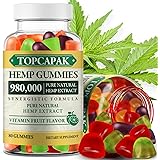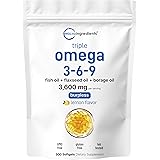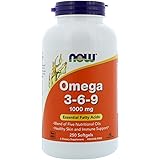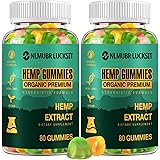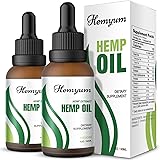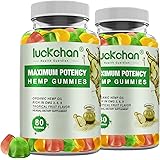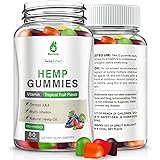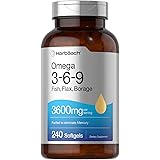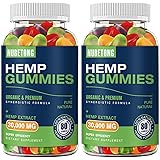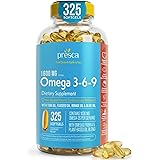As the global medical cannabis market continues its significant expansion, with projections estimating billions in revenue over the next decade, a growing number of individuals are exploring how to create their own therapeutic preparations. The desire for personalized and cost-effective remedies often leads to home production methods. The accompanying video offers a concise overview of how to produce your own medical marijuana oil using a high-proof alcohol extraction method.
This article delves deeper into the specifics of crafting quality medical marijuana oil, elaborating on the techniques presented in the video and introducing crucial foundational knowledge for optimal results. Understanding each step, from initial preparation to final refinement, ensures both potency and purity in your homemade oil.
Understanding the Foundation: Decarboxylation for Potent Medical Marijuana Oil
Before any extraction process begins, a critical step often overlooked in quick guides is decarboxylation. This chemical reaction converts inactive cannabinoid acids, such as THCA and CBDA, into their active forms, THC and CBD, respectively. Without proper decarboxylation, your medical marijuana oil will lack the desired therapeutic effects.
Consequently, adequately decarboxylating your cannabis material is paramount for maximizing the potency of your medical marijuana oil. Typically, this involves heating your dried cannabis flower at a low temperature for a specific duration. For instance, many home producers bake their cannabis at approximately 240°F (115°C) for 30-40 minutes, ensuring the beneficial compounds are activated without degradation.
The High-Proof Alcohol Extraction Method for Cannabis Oil
The video demonstrates a straightforward method involving high-proof alcohol, such as Everclear, as a solvent to extract beneficial compounds from cannabis. This technique, often favored for its simplicity and effectiveness, rapidly pulls cannabinoids and terpenes from the plant material. Consequently, selecting the right solvent and adhering to precise timings are crucial for optimal extraction.
Selecting the Ideal Solvent
When preparing medical marijuana oil, the choice of solvent profoundly impacts the extraction process and final product. High-proof alcohol, specifically grain alcohol like Everclear (typically 190 proof or 95% alcohol), is preferred due to its efficiency in dissolving cannabinoids and terpenes. Moreover, its high purity ensures minimal impurities are introduced, and it evaporates cleanly during the refinement stage.
It is imperative to avoid using isopropyl alcohol, which is not safe for internal consumption due to toxic residues. Furthermore, ensuring good ventilation is always advisable when working with any flammable solvents to prevent the buildup of fumes.
The Soaking and Mashing Process
Once your cannabis is decarboxylated and cooled, the extraction can begin. The video instructs to pour the high-proof alcohol over the cannabis buds, then stir and mash the mixture together. This mechanical agitation facilitates the rapid dissolution of cannabinoids and terpenes into the alcohol, forming a potent solution.
A crucial detail from the video specifies stirring and mashing the cannabis and solvent for **2-3 minutes**. This brief duration helps to extract the desired cannabinoids while minimizing the extraction of undesirable chlorophyll and waxes, which can impart a harsh taste. Extending this time excessively often leads to a darker, more chlorophyll-rich oil.
Effective Straining and Repetition
After the initial soak, straining the mixture into another container separates the solvent-cannabinoid solution from the spent plant material. For superior purity, a fine mesh strainer followed by a coffee filter or cheesecloth can be employed. This two-stage filtration effectively removes fine particulate matter, contributing to a cleaner medical marijuana oil.
The video then recommends repeating the soaking, mixing, and straining process. This reiteration ensures a more thorough extraction of cannabinoids, maximizing the yield from your cannabis material. Combining the strained liquids from both cycles creates a more concentrated starting solution for the next phase.
Refining Your Medical Marijuana Oil: The Double Boiler Process
The final stage in producing medical marijuana oil involves safely evaporating the alcohol solvent, leaving behind a concentrated cannabis extract. Utilizing a double boiler is a critical safety measure, as it prevents direct heat from reaching the flammable alcohol. This method ensures a gradual and controlled evaporation, preserving the integrity of the cannabinoids.
Safe Solvent Evaporation
Pouring the strained cannabis-alcohol mixture into a double boiler allows for gentle heating without direct flame contact, significantly reducing fire hazards. The water in the lower pot maintains a consistent, controlled temperature, ideal for slowly boiling off the alcohol. Proper ventilation remains absolutely essential during this stage to safely disperse alcohol vapors.
The video advises bringing the marijuana mixture to a boil and then allowing it to simmer for **15-25 minutes**. This simmering period is crucial for the complete evaporation of the alcohol, ensuring the final medical marijuana oil is pure and potent. A sticky, dark resin will remain once the alcohol has fully evaporated, indicating a successful extraction.
Achieving the Desired Consistency
As the alcohol evaporates, the cannabis oil will thicken significantly. You may notice bubbling and a change in consistency; this signifies the solvent is dissipating. Once the mixture stops bubbling and reaches a thick, syrupy consistency, most of the alcohol has been removed. A heat-resistant silicone spatula can assist in collecting the viscous medical marijuana oil from the double boiler.
Beyond the Basics: Enhancing Your Homemade Cannabis Oil
With your concentrated medical marijuana oil now complete, several considerations can optimize its use and longevity. Proper storage, dilution, and understanding alternative methods significantly enhance the value of your homemade extract.
Storage and Dilution for Versatility
Once cooled, transfer your medical marijuana oil to an airtight, opaque container, such as a glass jar or syringe, to protect it from light and air. Storing it in a cool, dark place or refrigerator helps maintain its potency and extends its shelf life. This concentrated oil can be quite potent, so consider diluting it with a carrier oil like MCT oil, olive oil, or hemp seed oil for easier dosing and consumption, especially for sublingual use or as a topical.
For instance, mixing a gram of concentrated oil with 10-20ml of carrier oil creates a tincture that can be precisely measured with a dropper. This allows users to start with a low dose and gradually increase it until the desired therapeutic effect is achieved, providing greater control over their medical cannabis regimen.
Alternative Extraction: The Rice Cooker Method
The video briefly alludes to using a rice cooker for preparing medical marijuana oil, indicating another popular and often simpler method for evaporating solvents. Rice cookers offer a gentle, consistent heat source, which makes them an excellent, safer alternative to open flames or direct heat for alcohol evaporation. Many models have ‘warm’ settings that maintain temperatures ideal for this process, minimizing the risk of overheating. Utilizing a rice cooker follows the same principle of slowly evaporating the alcohol, typically using a dedicated “warm” cycle or setting to prevent scorching the precious medical marijuana oil. It is still crucial to ensure good ventilation when using this method.
Safety and Legality Considerations for Home Extraction
Producing medical marijuana oil at home requires a strict adherence to safety protocols and an understanding of legal regulations. Always work in a well-ventilated area to prevent the accumulation of flammable alcohol fumes, and keep fire extinguishers readily accessible. Additionally, never use open flames or sparks near high-proof alcohol.
Furthermore, the legality of cultivating cannabis and extracting medical marijuana oil varies significantly by jurisdiction. Before attempting any home extraction, research and comply with all local, state, and federal laws regarding cannabis possession and processing. Being fully informed about these regulations is paramount to ensure a safe and lawful experience.
Extracting Insights: Your Medical Marijuana Oil Q&A
What is the first important step before making medical marijuana oil?
The first critical step is decarboxylation, which involves gently heating the cannabis. This process converts inactive compounds into active ones, like THC and CBD, to ensure your oil has therapeutic effects.
What type of alcohol should I use for extracting medical marijuana oil?
You should use high-proof grain alcohol, such as Everclear (190 proof or 95% alcohol). This type of alcohol is effective at dissolving beneficial compounds and evaporates cleanly.
How long should I mix the cannabis with the alcohol during extraction?
You should stir and mash the cannabis and alcohol mixture for only 2-3 minutes. This brief period helps extract the desired compounds while minimizing the extraction of unwanted chlorophyll.
Why is a double boiler used to evaporate the alcohol from the mixture?
A double boiler is used as a critical safety measure because it prevents direct heat from reaching the flammable alcohol. This ensures a gradual and controlled evaporation, significantly reducing fire hazards.
Are there any safety or legal considerations when making medical marijuana oil at home?
Yes, always work in a well-ventilated area and never use open flames near alcohol fumes for safety. Also, the legality of making cannabis oil varies by location, so research and comply with all local laws.


